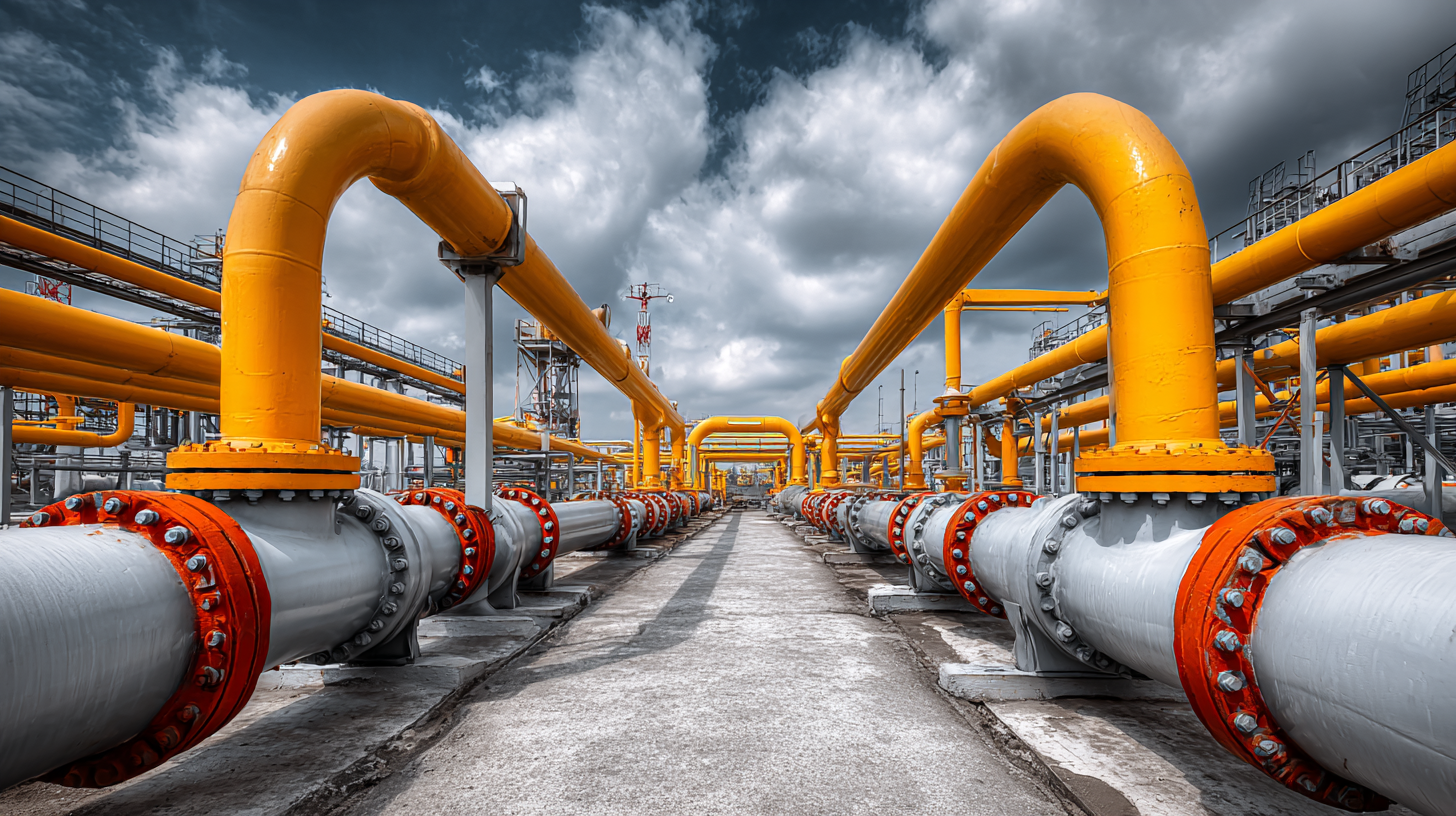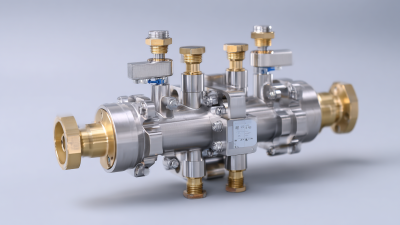What is the Role of Valve Industries in Modern Engineering?
The role of valve industries in modern engineering cannot be overstated, as they serve as crucial components in a vast array of systems across various sectors. From fluid control to pressure regulation, valves are essential for ensuring efficiency, safety, and functionality in processes that range from industrial manufacturing to energy production and environmental management. With advancements in technology, valve industries have evolved significantly, embracing digitalization and innovative materials that enhance performance and longevity. As industries strive for greater sustainability and reduced operational costs, the integration of smart valve systems and automation technologies has become increasingly important. This evolution not only optimizes the performance of existing infrastructures but also paves the way for the development of more efficient systems tailored to meet the demands of a rapidly changing world. Ultimately, understanding the pivotal role valve industries play in modern engineering is essential for anyone looking to comprehend the complexities of contemporary industrial operations.

The Significance of Valve Industries in Modern Industrial Automation
The valve industry plays a crucial role in modern industrial automation by serving as a fundamental component in controlling the flow of fluids and gases across various applications. As industries increasingly adopt automation technologies, the importance of valves in maintaining efficiency, safety, and reliability becomes ever more evident. The growing demand for automation in sectors such as food processing and energy generation drives the valve market, projected to witness significant growth in the coming years.

As global markets expand, especially in regions like Vietnam, industries are presented with opportunities to integrate advanced valve technologies into their operations. The upcoming international industrial exhibitions highlight the focus on building stronger industrial capabilities while fostering collaboration between technology providers and manufacturers. Such initiatives will further enhance the integration of sophisticated valve systems, optimizing production processes and improving overall productivity across various industries.
Global Market Trends: The Economic Impact of Valve Industries on Engineering Sectors
The valve industry plays a critical role in modern engineering, impacting various sectors globally. As per a recent market report by Valuates Reports, the global valve market is projected to reach USD 90 billion by 2027, growing at a CAGR of 4.5% from 2020. This growth reflects not only increased demand from industries such as oil and gas, water treatment, and power generation but also emphasizes the need for advanced valve technology that meets stricter environmental regulations and efficiency standards.
Additionally, the economic impact of valve industries transcends mere sales figures. According to a study by ResearchAndMarkets, the valve industry's contribution to the global engineering market includes not just revenue generation but also job creation, with millions of jobs sustained across manufacturing, maintenance, and distribution channels. The investment in innovative valve solutions fosters advancements in automation and process control, further driving productivity in engineering sectors. As industries adopt smart technologies, the demand for sophisticated valves that can integrate into these systems is set to rise, illustrating the pivotal role that valve industries play in shaping the future of engineering.
What is the Role of Valve Industries in Modern Engineering? - Global Market Trends: The Economic Impact of Valve Industries on Engineering Sectors
| Sector |
Market Size (Billion USD) |
Growth Rate (%) |
Key Applications |
Impact on Employment |
| Oil and Gas |
28.5 |
5.0 |
Flow control, pressure regulation |
High demand for skilled labor |
| Water and Wastewater |
15.2 |
3.8 |
Water treatment systems, distribution |
Stable, with growth support |
| Chemical Processing |
18.6 |
4.5 |
Fluid control, safety systems |
Increasing technological roles |
| Power Generation |
20.1 |
4.2 |
Thermal and nuclear systems |
Positive growth in engineering jobs |
| Food and Beverage |
10.3 |
3.0 |
Hygienic flow control |
Moderate demand for culinary engineers |
Key Technologies: Innovations in Valve Manufacturing and Their Engineering Applications
Valve manufacturing plays a crucial role in modern engineering, with innovations leading to enhanced efficiency and reliability across various applications. Recent data from the Global Valve Market Research Report highlights that the global valve market is projected to reach $100 billion by 2025, driven by advancements in technology and increasing demand for automation in industries such as oil and gas, water treatment, and power generation. These industries rely on high-performance valves to ensure safety and operational efficiency.

Key technologies have emerged in valve manufacturing, including the adoption of smart valves equipped with IoT capabilities. These smart valves can monitor performance in real-time, enabling predictive maintenance and reducing downtime. According to a study by MarketsandMarkets, the market for smart valves is expected to grow from $1.2 billion in 2020 to $2.6 billion by 2026, reflecting a CAGR of 15.6%. Additionally, advancements in materials such as corrosion-resistant alloys and high-performance plastics have expanded the operational lifespan of valves, making them suitable for extreme conditions and reducing maintenance costs for engineers. These innovations not only enhance the functional capabilities of valves but also contribute to overall sustainability initiatives within engineering fields.
Safety Standards and Regulations: The Role of Valves in Ensuring Industrial Compliance
In modern engineering, valves play a critical role in ensuring safety and compliance within various industrial sectors. They serve as vital components in controlling fluid flow, preventing leaks, and maintaining pressure levels. Adhering to safety standards and regulations is not merely about compliance; it’s about fostering a work environment where risks are minimized and operational efficiency is maximized. Properly functioning valves are essential for safeguarding industrial processes and protecting workers.
Tips: Regular maintenance and inspection of valves can significantly reduce the risk of failures. Implementing a scheduled check-up routine can help identify wear and tear before they escalate into serious issues. Additionally, training staff on the importance of valve operations and safety protocols can further enhance compliance with industry standards.
Moreover, with the evolution of technology, smart valves equipped with sensors are becoming increasingly popular. These advanced systems can provide real-time data on pressure and flow, enabling prompt interventions when anomalies are detected. Engaging with these technological advancements not only meets regulatory requirements but also positions companies as leaders in safety innovation.
Future Outlook: Challenges and Opportunities for Valve Industries in Engineering领域
The valve industry plays a crucial role in modern engineering, particularly as various sectors face evolving challenges and opportunities. Future advancements hinge on the ability of valve manufacturers to adapt to new technologies and increasing efficiency demands. As sustainability becomes a priority, companies are expected to innovate by creating valves that not only meet current regulatory standards but also support environmentally friendly practices, such as reduced emissions and energy consumption.
**Tip: Keep an eye on the integration of smart technologies in valve systems.** Increasingly, smart valves equipped with IoT capabilities can provide real-time data analytics, improving maintenance schedules and reducing operational risks. This trend positions the valve industry at the forefront of enhanced automation and operational efficiency.
Moreover, the global push towards infrastructure modernization opens up new markets for valve industries. However, this can also introduce substantial competition, requiring companies to focus on quality and reliability to maintain their market position. Collaboration with engineering firms to design customized solutions can drive innovation and meet the diverse needs of today's projects.
**Tip: Embrace partnerships and collaborations with tech firms.** This can pave the way for the development of cutting-edge valve solutions that not only meet current needs but also anticipate future trends in engineering and environmental responsibility.
Valve Industries Role in Modern Engineering: Challenges and Opportunities





